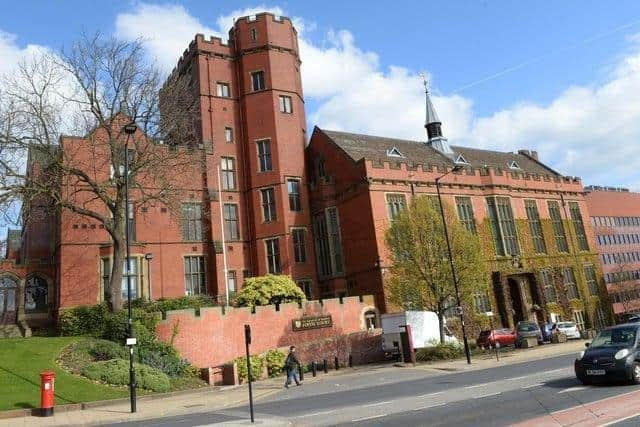University of Sheffield joins new study to understand reinfection of Covid-19
and live on Freeview channel 276
Researchers from the University have joined the consortium to investigate why some people catch Covid-19 more than once or after having the vaccination.
The new study, led by Public Health England, will also assess how long immunity from vaccinations lasts, how the timeline differs between the different vaccines and how changes in the Covid-19 virus genetic make-up might evade the immune response.
Advertisement
Hide AdAdvertisement
Hide AdIt is hoped the study could help identify factors that increase the risk of ‘breakthrough’ infections or cases of illness in which a vaccinated individual contracts the same illness that the vaccine is meant to prevent.


These types of infections can be more common amongst health care workers who are in direct contact with infected patients.
Dr Thushan de Silva, Senior Clinical Lecturer at the University of Sheffield, said: “We have learned a great deal about SARS-CoV-2 vaccine responses in the studies we have conducted in UK healthcare workers so far. As we assess the role of vaccines in controlling SARS-CoV-2 infections in the longer term, it is vital that we understand why some individuals become infected despite vaccination and others do not. This will help shape the rationale and design of future vaccine strategies.”
Individuals enrolled in the study will be given PCR tests every two weeks as well as regular antibody blood tests.
Advertisement
Hide AdAdvertisement
Hide AdThe antibody results of those individuals who test positive for Covid-19, despite having had two doses of the vaccine or a previously confirmed infection, will be analysed further and tested to determine whether there are aspects of their immune response that differ from individuals who do not contract Covid-19.
Professor Susan Hopkins, COVID-19 strategic response director at Public Health England at PHE, said: “Understanding the immune response is essential not only to determine who is most at risk of infections after vaccination but also for vaccine developers who can target key components of the immune response effectively for future boost vaccines.
“We are pleased that this funding will allow us to better understand immunity and are very grateful to the nearly 50,000 participants who have given up their time to take part in the study.”